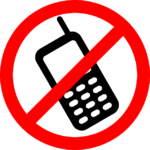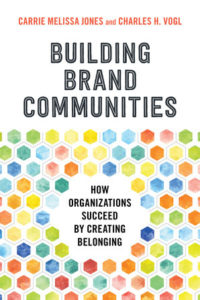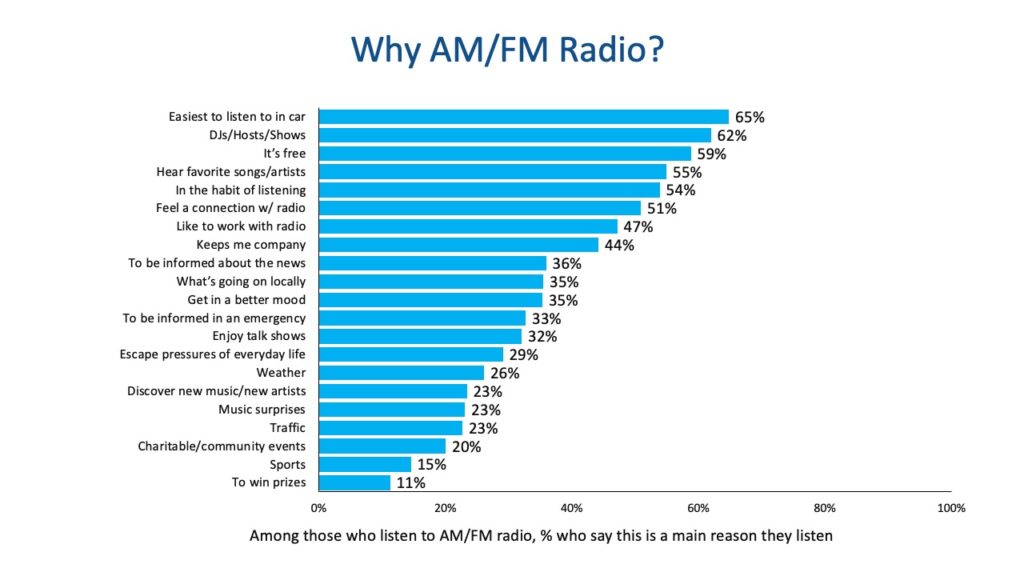Few other mediums rely on contesting as heavily as radio. I have rarely if ever seen my local television station or newspaper try to attract an audience through contests. Newer forms of media seem to shun contests entirely. I certainly don’t know anybody who started posting to Facebook or Instagram or TikTok because they were bribed by these companies with a prize. Sure, there are companies that run contests on these social platforms, but that’s not the same as the platforms themselves hosting contests. And yet, the idea of abandoning contests entirely makes most radio program directors deeply uncomfortable.

When I was a Program Director of an alternative rock radio station, my world revolved around contests. Every week, I huddled with my programming staff to figure out what we would give away during the upcoming week (invariably, some variation of concert tickets) and how we would give that prize away. But I didn’t think of these contests as a way to bribe people to listen with prizes. Instead, I insisted that every contest have what I call the “Play-Along-At-Home Factor.” In other words, it had to be just as enjoyable for the audience members who are not playing the contest as it is for the contestants, in the same way that it’s fun to watch Wheel of Fortune even if you’re not the one buying vowels from Pat Sajak. I eschewed “Caller Number 9” contests because they didn’t provide any entertainment value for the average listener.
In my mind, the prize wasn’t the incentive for people to list; the entertainment value was the incentive.
External vs. Internal Motivations
Recently, I’ve spent a lot of time with the book Building Brand Communities by Carrie Melissa Jones and Charles Vogl. It has given me food for thought about what motivates people. The authors dedicate an entire chapter to “Motivation and Encouraging Participation.” While they discuss what motivates community members, not audience members (you can read about the difference between the two here), there is an important lesson for radio programmers.
 Jones and Vogl write:
Jones and Vogl write:
“The use of incentives, rewards, and acknowledgments to encourage participation is an area that unskilled leaders often get painfully wrong. Misunderstanding how members are motivated, and ‘rewarding’ them inappropriately, can destroy goodwill and a community.”
They continue:
“Inexperienced leaders often misunderstand how people are motivated toward community participation and contribution. As a result, they will ‘give away’ goodies (such as branded swag or gift cards) thinking that this will create participation, contribution, and loyalty from the recipients.”
The authors draw a distinction between external and internal motivations:
- “External motivation drives us to action in order to get a reward or avoid punishment.”
- “Internal motivation comes from inside us and feels like a natural part of ourselves. When we are internally motivated, no one else need to provide anything more to inspire us to action.” (emphasis theirs)
Radio listeners are, for the most part, internally motivated. We know this because every year, we ask them why they listen to AM/FM radio as part of our annual Techsurvey. Here’s are the reasons they gave for listening to the radio in Techsurvey 2022:

The majority of motivating factors for listening are internal: people like the ways it feels. While perhaps “it’s easiest to listen to in the car” and “it’s free” could be considered external motivating factors because they avoid punishment (work and cost, respectively), the only external reward — prizes — ranks dead last with only 11%. So why are we as radio programmers so obsessed with contesting?
Incentives vs. Tokens
Jones and Vogl point out that both external and internal motivations can be encouraged through rewards, but they require different types of rewards: incentives and tokens:
- “An incentive is intended to incite action. An incentive appeals to external motivation for someone to take action.”
- “A token is an item given to someone. It represents a relationship, a shared value, or both. A token specifically honors a recipient’s internal motivation.”
For example, if I need a ride to the airport, I must incentivize an Uber driver with money; they won’t take me unless I pay. On the other hand, if my friend drops me off at the gate, I will thank him by taking him to dinner. The dinner is not an incentive; it’s a token. My friend would’ve given me a lift without receiving dinner, but the sign of appreciation makes him more likely to be internally motivated to do so again in the future.

I asked Paige Nienaber, author of The Encyclopedia of Radio Promotions and the industry’s leading mind when it comes to creative promotions, what he made of this distinction between incentives and tokens. He said, “Pretty much every contest seems to be an incentive: if you listen at some ridiculous appt time, like “2:08”, we’ll give you something as a reward.”
He’s right. Radio programmers traditionally think of contest prizes as incentives that appeal to the external motivations of listeners. But I know of at least one prize that is a token, not an incentive: Wait Wait…Don’t Tell Me!‘s infamous voicemail greeting.
Wait Wait is NPR’s syndicated weekly news quiz show. It features a segment called “Bluff the Listener,” in which a listener is read three news stories and must identify which one is fake. For years, the listeners’ reward for correctly choosing the fictitious story was a voicemail greeting recorded by announcer Carl Kasell, whose deep voice is instantly recognizable to any public radio fan. Kassel retired in 2014 and passed away in 2018, and today the winner receives a voicemail greeting recorded by their choice of the celebrity panelists.

I asked Doug Berman, the Benevolent Overlord of the show, how they came up with this prize. He told me:
“It was cheap. We didn’t have money for prizes. And it reinforced the whole nature of the show. It was both worthless, and priceless. We were making fun of ourselves as a game show. And just the idea of it made a statement about how we didn’t take ourselves seriously, and that prizes are not what this show is about. Winning it, and even wanting it, made you part of our club.” (emphasis mine)
In other words, the voicemail greeting is a token that appeals to fan’s internal motivations.
I was curious if Wait Wait had ever considered offering a prize that appealed to listener’s external motivations, so I asked Doug if they ever thought about giving away something of monetary value. He replied:
“I’m sure we tossed around some ideas, but they all seemed so small compared to getting Carl Kasell’s voice on your voicemail. One of the key elements of the show is that Carl was a hero. He was a cool dude — a newsman of great stature, willing to risk his reputation to be associated with us and get some laughs. The prize said, ‘We’ll give you something at the very heart of our show if you play and win.’ A T-shirt seemed like a distant second to that.”
The Lesson for Radio Programmers
So many radio stations have budget restraints these days that coming up with big prizes can be difficult. But there’s a lesson in Wait Wait‘s voicemail greeting: “Big” prizes only need to have a high monetary value if they’re appealing to listeners’ external motivations. But if you appeal to their internal motivations, the prize can still be big even if the price tag isn’t.
I asked Paige if he knew of any other radio stations that gave listeners tokens instead of incentives. He said, “At-work marketing is primarily ‘token;’ we thank you for listening by bringing you food. WiLD in Tampa used to just take random callers and give them stuff as an ode to their fandom.” (If anyone on the WiLD staff needs a ride to the airport, let me know!)
So maybe contests can still play an important role for radio stations even if other mediums don’t use them; but perhaps they don’t play the role that we think they do. Maybe contests are a way to show our appreciation for our biggest fans. Find a token that makes your winners part of the club, and you’ll motivate them to keep listening far more than an expensive prize can.
- A Simple Digital Treat to Thank Your Radio Listeners This Thanksgiving - November 13, 2023
- Interview Questions When Hiring Your Radio Station’s Next Digital Marketing Manager - November 6, 2023
- A Radio Conversation with ChatGPT: Part 2 – Promotions - October 30, 2023





Leave a Reply